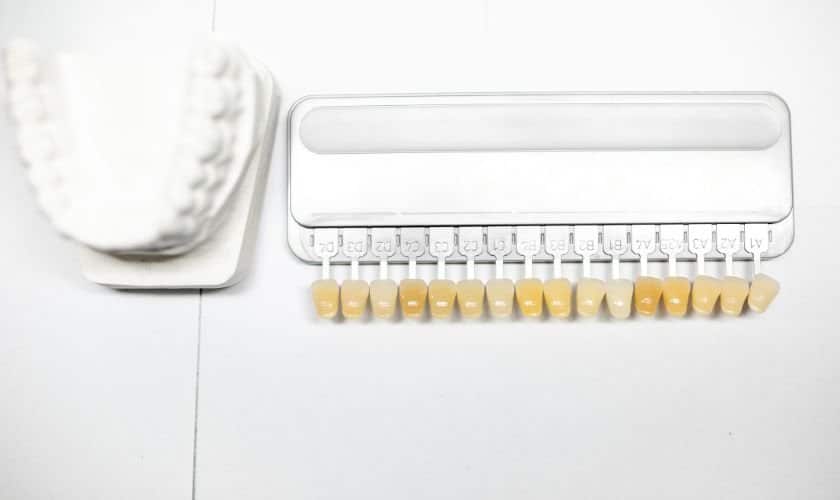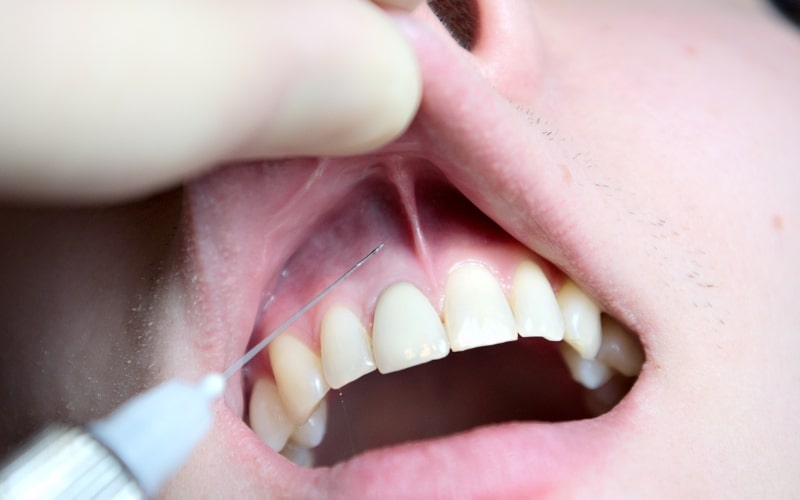27382 Calle Arroyo, San Juan Capistrano, CA, 92675

Most people are familiar with porcelain veneers, as they are popularly used in cosmetic dentistry to improve the appearance of teeth. Porcelain veneers provide a strong, natural-looking solution for correcting a variety of dental issues such as discoloration, chips, and gaps in teeth. While these impressive restorations often come with instructions on how to care for them properly, there are many commonly held myths about eating with porcelain veneers that can create confusion. In this article we will look at seven myths busted about eating with porcelain veneers so you can make informed decisions when caring for your restoration.
Myth 1: Porcelain Veneers Can’t Handle Hot Foods and Drinks
This is not true. Porcelain veneers are actually very durable and can handle hot foods and drinks with no problem. Porcelain veneers are made of a strong material that doesn’t easily break or crack, and they are designed to withstand the same temperatures as natural teeth.
Myth 2: Acidic Foods Will Damage Porcelain Veneers
It is important to note that acidic foods should be consumed in moderation, but they will not damage porcelain veneers. Porcelain veneers are highly resistant to acid erosion, so there’s no need to avoid acidic foods altogether. Just like with natural teeth, it is recommended that you rinse your mouth with water after eating acidic foods to help protect your veneers from staining.
Myth 3: Porcelain Veneers Will Stain Easily
Porcelain veneers are stain resistant, and much more so than natural teeth. Porcelain is non-porous which means it does not absorb stains from food and beverages like natural teeth do. It is important to note that porcelain veneers can still stain over time, but the rate of staining will be much slower than with natural teeth.
Myth 4: Porcelain Veneers Can’t Handle Chewy Foods
This is false. Porcelain veneers are extremely strong and capable of handling most types of food. Porcelain veneers can easily handle foods such as steak, tough meats, and chewy candy without any risk of damage.
Myth 5: Porcelain Veneers Will Wear Down Quickly
Porcelain veneers are designed to be durable and resistant to wear over time. Porcelain is a strong material that will not wear down quickly when used for eating or other everyday activities. In fact, porcelain veneers are often stronger than natural tooth enamel and should last for many years with proper care and maintenance.
Myth 6: Porcelain Veneers Are Too Fragile For Eating
This is completely false. Porcelain veneers are designed to be strong and durable. Porcelain is a very strong material that can handle the same daily activities as natural teeth, including eating. Porcelain veneers should not be tougher than natural teeth, but they should provide a lasting solution for many years with proper care and maintenance.
Myth 7: Porcelain Veneers Will Crack Easily
Porcelain veneers are designed to be strong, so they will not crack or break easily when used for everyday activities such as eating. Porcelain is highly resistant to cracking and fractures, making it an ideal material for dental restorations like porcelain veneers. However, it is important to keep in mind that porcelain veneers can still crack if subjected to extreme force or trauma.
Summary
Porcelain veneers are a popular and effective solution for improving the appearance of teeth, and they provide a strong and natural-looking restoration. Porcelain veneers can handle most types of food and drinks with no problem, but it is important to practice proper oral hygiene habits to ensure that your porcelain veneers remain in good condition for years to come.
FAQs
Q: What types of foods can I eat with porcelain veneers?
A: Porcelain veneers are designed to be durable and capable of handling most types of food. Porcelain veneers should be able to handle hot foods and drinks, chewy foods, acidic foods, and even hard candy with no problem.
Q: Should I avoid certain foods when wearing porcelain veneers?
A: Porcelain veneers should be able to handle most types of food with no problem. However, it is important to practice moderation when consuming acidic or sugary foods as these may cause staining over time. It is also recommended that you rinse your mouth after consuming these types of food in order to help protect your veneers from staining.
Q: Will my porcelain veneers crack easily?
A: Porcelain veneers are designed to be strong and durable, so they will not crack or break easily when used for everyday activities such as eating. Porcelain is highly resistant to cracking and fractures, making it an ideal material for dental restorations like porcelain veneers. However, it is important to keep in mind that porcelain veneers can still crack if subjected to extreme force or trauma.





